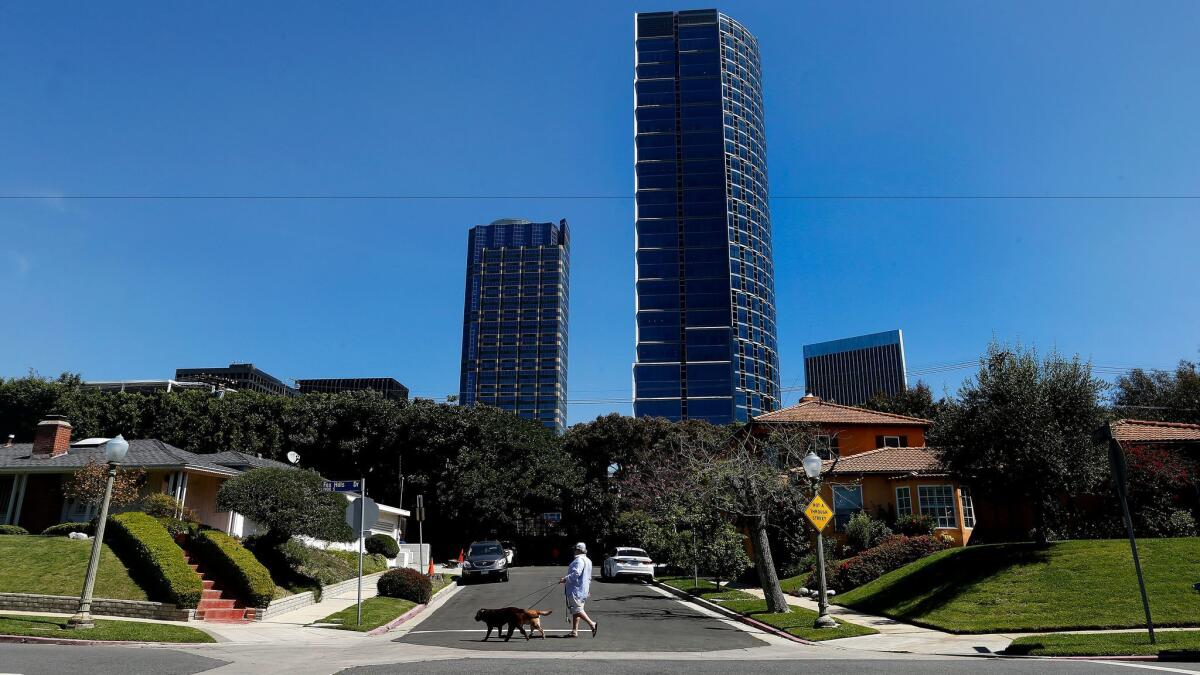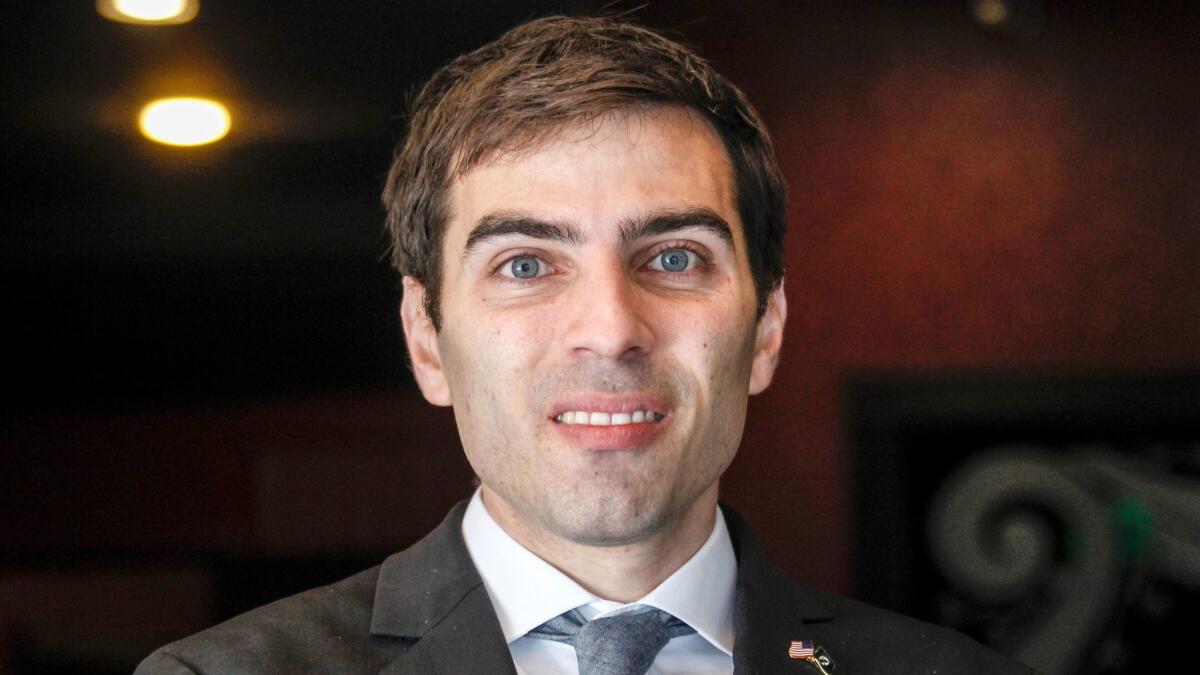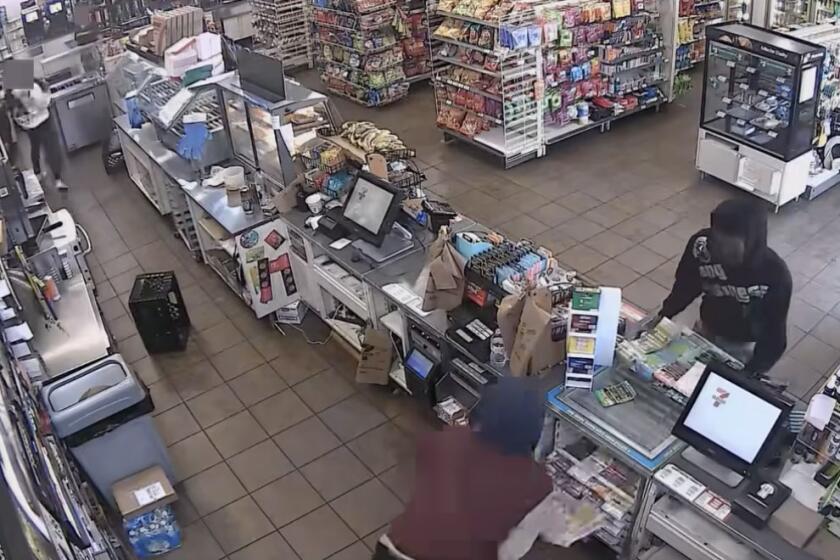When developers strike deals with homeowner groups: ‘Hush money,’ or a way to defend L.A. neighborhoods?

Five years ago, the Century City mall was looking at hiking parking rates, but in a way that would avoid pushback from nearby residents.
A local homeowner group had long argued that pricier parking at the mall would mean more shoppers hunting for spaces on residential streets.
Westfield, the mall’s owner, found a way to ensure the neighborhood would not be an obstacle: It struck a secret deal to pay $3.1 million to a local nonprofit organization, according to court documents.
Such payments are one way developers keep the peace. But the money from Westfield has instead become the subject of a bruising legal fight, with a Westside homeowners association commonly known as Tract 7260 claiming that another group, Fix the City, wrongly received the funds.
The battle now being waged between the two nonprofit groups has pulled back the curtain on secret financial deals between developers and Los Angeles neighborhood leaders. Critics say such confidential agreements amount to “hush money.” But those who negotiate them argue that they are a necessary tool for protecting communities from unchecked development — and a way to pay for needed city services.
The issue came into focus during the March 7 city election campaign, with some arguing that undisclosed payments from developers to neighborhood groups need to be regulated.

Jesse Creed, who ran unsuccessfully for City Council on the Westside, said secret payments from real estate interests make it difficult to tell whether a neighborhood group is supporting a project for the right reason: because it makes sense for a community.
“It’s the same reason developer donations [to politicians] are bad,” Creed said. “Money in Los Angeles is controlling the planning process, not professional planning or smart development principles.”
Creed contends agreements between developers and homeowner groups should be made public. Neighborhood leaders, in turn, say developers are the ones who frequently require that the agreements remain secret.
Barbara Broide, president of the Westwood South of Santa Monica Blvd. Homeowners Assn., said homeowner groups typically agree to confidentiality while fighting to ensure that new development doesn’t significantly worsen traffic, stretch overburdened city services or create nuisances.
If city leaders scrutinized those projects properly, she said, volunteer groups would not be forced to negotiate with developers on their own.
“These kinds of agreements are the unfortunate product of the city’s failure to do its duty in the environmental review process,” Broide said.
In some cases, the agreements between developers and neighborhood groups have resulted in funding for public facilities, such as schools, parks, libraries, police stations and fire stations. But such pacts can also give groups a fresh source of money to pursue legal challenges against other developers.
Some in the business community contend the private settlement process borders on extortion, with developers paying to avoid costly legal battles. Those payments, said developer Mott Smith, inflate the cost of housing construction and make building in L.A. a risky endeavor.
“In certain parts of the city, unless you budget $1 million-plus for secret legal settlements, you shouldn’t even start a project,” he said.
::
The two groups fighting over the $3.1 million are known for their savvy, sometimes litigious approach to real estate development. The Tract No. 7260 Assn., which represents homeowners west of Century City, has repeatedly challenged Westside projects on the grounds that they increase traffic and place new burdens on city services.
The group boasts of its success in getting real estate companies to seek its input early in a project’s application process. “Developers know that if they don’t, they risk [a] lawsuit,” its website states.
Fix the City has sued over projects well outside Century City, including a 269-unit residential tower approved in Koreatown and a Frank Gehry-designed complex planned in Hollywood, alleging the city failed to follow its own planning procedures.
The group’s leaders say they are focused on ensuring that officials provide adequate city services and physical infrastructure to accommodate new development.
Fix the City has also challenged major planning initiatives, such as the city’s 2015 plan for adding hundreds of miles of bicycle- and bus-only lanes.
Representatives of Tract 7260, which recently changed its name to Century Glen, declined to comment on their legal dispute with Fix the City.
According to its lawsuit, Tract 7260 had a longstanding agreement requiring the Century City mall to obtain the homeowner group’s written permission before applying for changes to its parking fees.
Westfield began seeking Tract 7260’s consent in 2012, as part of a push to eliminate free parking at the mall, the group said in its lawsuit. To ensure the group would not oppose the change, the company agreed to pay $3.1 million to a nonprofit selected by Tract 7260, the lawsuit said.
Tract 7260 alleges in its lawsuit that Mike Eveloff, while serving as its president, wrongfully arranged for that money to go to Fix the City. Eveloff, who sits on Fix the City’s board, orchestrated the transfer in 2012 “in a shroud of secrecy,” working to keep Tract 7260 board members from discovering the deal’s particulars, Tract 7260 said in its filing.
“Eveloff … secretly formed Fix the City, under his control, as the nonprofit to receive the money from the mall so that he could use it for his own pet projects instead of improvements in the Tract 7260 neighborhood,” the homeowner group said in one legal filing.
Westfield spokeswoman Katy Dickey declined to comment on the case. But Fix the City has responded with its own lawsuit, accusing Tract 7260 board members of mismanaging funds and attempting to invalidate two properly conducted board votes.
The Tract 7260 board “extensively” discussed the plan for giving the money to Fix the City, deciding the funds should be used for “citywide community interest advocacy and litigation,” according to the countersuit. Board members were well informed before they made their decision, Eveloff said in an interview.
“Fix the City was given a set of projects to work on by Tract 7260, and it has executed those wishes faithfully,” he said.
Eveloff said Tract 7260 specifically assigned Fix the City to challenge the city’s Hollywood Community Plan update, which called for taller, denser development along transit corridors. Fix the City and two other groups went to court, persuading a judge to invalidate the plan.
Tract 7260 also instructed Fix the City to fight a retail and residential complex planned on Pico Boulevard near the 405 Freeway, Eveloff said. In that case, Fix the City helped persuade the project’s developer to downsize the project and pay for improvements at the Westwood Recreation Center, Overland Avenue School and other public facilities, he said.
Documents filed in the ongoing lawsuit show that Tract 7260 has reached at least four other confidential agreements over real estate projects in and around Century City. Whether all of those pacts included developer payments is unclear.
The practice of confidential deal-cutting between homeowner groups and developers dates back decades in Los Angeles. In 1988, The Times reported that a hotel developer agreed to provide $250,000 to three Westside homeowner groups in exchange for their support for a liquor license. The money was directed to a nonprofit foundation run by the three groups.
In 2008, four homeowner groups — including Tract 7260 — reached an agreement with a developer ending a legal challenge to a skyscraper project planned in Century City. In that secret pact, developer JMB Realty agreed to provide $2.25 million for public facilities and other purposes.
Last year, in L.A.’s Beverly Grove neighborhood, residents of an 11-story condominium building dropped their opposition to a project planned by developer Rick Caruso after he agreed to make $500,000 in repairs to their building.
One former homeowner group leader said he has become increasingly troubled that pacts between neighborhood leaders and real estate interests are kept confidential.
If an organization is demanding money to address complaints about traffic or emergency services, the public deserves to know how much of a financial settlement went to address those issues, said Jonathan Weiss, who previously served on the board of the Cheviot Hills Home Owners’ Assn.
When deals remain secret, “there’s no oversight, there’s no accountability,” he added.
Eveloff said developers frequently ask for confidentiality to avoid being sued by “unscrupulous people” seeking “copycat” settlements. At the same time, he bristled at assertions that developer payments constitute hush money.
On the Westside, Councilman Paul Koretz specifically asked developers to meet with local groups to resolve their differences, Eveloff said. Such negotiations have resulted in funding for LAPD tactical vests, traffic improvements, kids’ sports uniforms and many other community needs, he added.
“That’s not sinister,” Eveloff said. “That’s working with a developer to resolve people’s concerns.”
Times staff writer Emily Alpert Reyes contributed to this report.
Twitter: @DavidZahniser
UPDATES:
11:05 a.m.: This article was updated to clarify details of lawsuit allegations over the $3.1-million payment by Westfield.
This article was originally published at 10:20 a.m.
More to Read
Start your day right
Sign up for Essential California for news, features and recommendations from the L.A. Times and beyond in your inbox six days a week.
You may occasionally receive promotional content from the Los Angeles Times.






